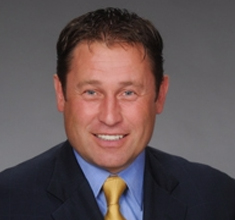Interviews
In-depth analysis of Industries and companies and how they manage complex and
demanding business environment.

Austria-born, Matt’s first language is German, he says it with emphasis and characteristic pride. His exposure to cultural diversity started very early. The seeds of which were sown, even unconsciously in his youth, when he spent 2 years in Taipei where his father was posted.
It was in 1991 that he moved to the US and got his Master’s Degree in Business Administration, in Atlanta. Thus began a rather impressive career which saw him work for very large US based companies like UPS, IBM and shuttling between continents. In 1992, the US was hit badly by recession but he was lucky enough to land a great job at UPS, where he spent the next 5 years before moving on to IBM in NY. In process, he got to work in Atlanta, Germany, Mexico, Toronto among others which set a strong foundation for a global career. At UPS, he got consumed by the logistics business and later in IBM, he dabbled extensively in technology which would have a major impact on his thinking process, including problem solving skills. Remember, those days were before Louis Gerstner came along and IBM was on the threshold of disruption, as it readied itself for an uncertain future.
At IBM, he spent around 15 years. It’s a great place to be which offers great career opportunities as well. Two things can happen if you stay that long – either you become an IBM Lifer (in its common parlance) or take that learning to another place to add tremendous value. In HCL, he chose to do the latter.
After having spent nearly two decades in the industry, he was presented with the current opportunity – the role of Chief Marketing Officer at HCL. Though he had been to India before and was quite familiar with the country’s cultural moorings, this was a rare opportunity. An Indian MNC which was also very strong in cultural diversity. For Matt, it was like hitting the proverbial sweet-spot, not something he could easily let go.
And why not? HCL was a high-growth company with a large employee base in North America and Europe as well, and it had created a very strong brand. What stood out was its employee-centric approach including a strong desire to give back to society through its numerous CSR initiatives. Thus far, his professional journey had predominantly been in sales, marketing and consulting. He was most thankful to his earlier organisations (UPS, a 60 billion dollar company and IBM, a 100 billion dollar one) for providing incredible learnings without which, and he was candid enough to say so, succeeding in HCL would have been extremely difficult.
We live in an interconnected world which is rather exceptional in condensed and instant interaction between people. And hardly constrained by anything – well almost. This underscores the all-important notion of diversity and the significance of being able to work in different cultures.
Today, is that “significant” or is it imperative?
HCL is a great company but very demanding. It’s aspirational and inspirational, is how Matt likes to put it. Focussed on high growth, it’s in a constant state of reinvention. From the time he joined, he has found the company to be introspective, values-driven and at the same time rather extraordinary in its approach to be customer-centric. Also, it has never shirked from being disruptive and has always exhibited a very high degree of courage.
Most enthused by the leaders at HCL, Matt is amazed by the amount of time they spend on innovation, re-invention, especially in the new areas of IoT, digital and cybersecurity. For this, they have something called a Mode 2 Strategy, a differentiated way of functioning in the mobile space (for instance). Creating IPRs and leveraging partnerships are also part of this. The company is always willing to look within to draw upon its inexhaustible resources and find out what’s required to stay competitive in a new world order. But most importantly, speed is not compromised because of this.
Post Brexit and President Trump’s ascendancy at the White House, HCL has made a concerted effort to chalk out a clear strategy for on-shore, off-shore and near-shore delivery, which has worked to its advantage. It is indeed noteworthy that both in North America and Europe, HCL has about 10k employees in employment and with one of the highest percentage of local hires. In addition, hiring from Tier 2 cities in India has served the company in good stead to be able to tap into the country’s vast pool of talent.
He also spoke very highly about the Shiv Nadar Foundation and its contribution to society. At a convocation of the Shiv Nadar University, Raghuram Rajan, who had been invited as a Keynote Speaker had said, this country is very fortunate that it had men like Shiv Nadar, who chose to give back so much to society. Be it business or CSR, the company pushes on relentlessly in its aim to bring about massive change. For Matt, the experience of working at HCL has been nothing short of WOW! Who would have thought this 25 years back when he started his career in US, Matt reminisces.

